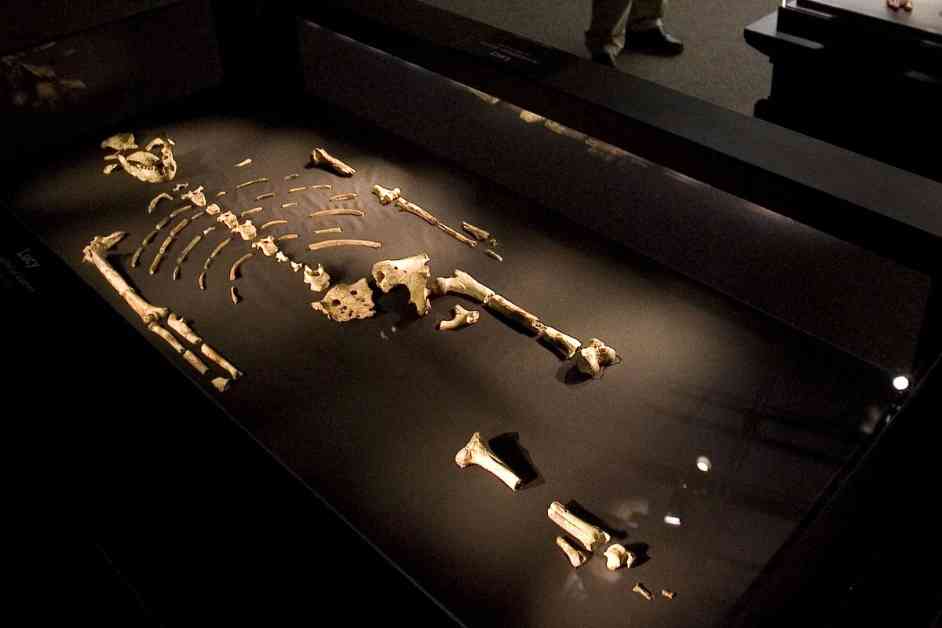Fifty years ago, researchers found an important fossil in Ethiopia that changed our understanding of human evolution. This fossil, known as Lucy, is a female hominin and has become famous worldwide. Lucy is special because she is a recognizable skeleton, similar to modern humans, making researchers believe she could be a close relative or even an ancestor of ours.
Lucy lived nearly 3.2 million years ago in the Horn of Africa, among a variety of primates and mammals. After her death, the chances of her remains becoming a fossil were slim. The fossilization process requires the bones to be covered by sediment, protected from damage, and then discovered and recovered by a team of scientists. Lucy’s discovery was exceptional due to these factors.
One reason Lucy is exceptional is that parts of her limbs were preserved, revealing that her limb proportions were closer to chimpanzees and bonobos than modern humans. Even though A. afarensis, the species Lucy belongs to, walked upright on two legs, their gait was different from modern humans.
The shared morphology of hominin species helps researchers understand their relationships. Although it is difficult to prove ancestry with the patchy fossil record, A. afarensis is likely a close relative of modern humans. Lucy’s discovery in 1974 marked a shift in the focus of human origins research from southern to eastern Africa.
Lucy was named after a character in a Beatles song, which made the fossil more relatable and user-friendly. However, there are implications to the names given to fossils, and some believe using Lucy’s Ethiopian nickname, Dinkinesh, meaning “you are marvelous,” would be more appropriate.
In conclusion, Lucy’s discovery has played a significant role in our understanding of human evolution. Her fossil remains have provided valuable insights into our past and continue to be a symbol of humanity’s deep evolutionary history. Moving forward, using her Ethiopian nickname, Dinkinesh, could bring a new perspective to this extraordinary fossil and honor her origins.




